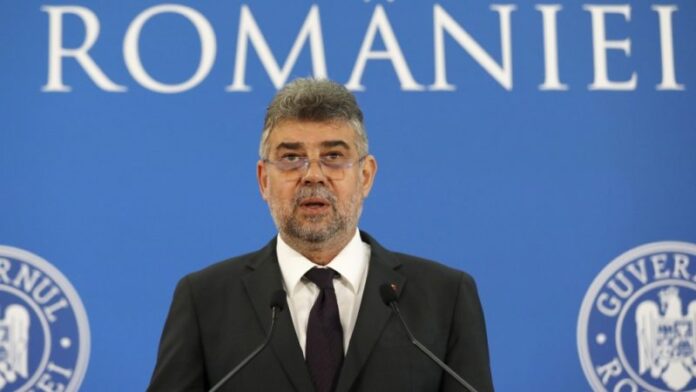The Romanian government will take responsibility for the administrative reform package and fiscal measures, Prime Minister Marcel Ciolacu announced on Thursday, allowing his government to pass laws on these files without amendments from parliament but exposing it to a possible no-confidence motion, according to Euractiv.
The tax and budget package has been under negotiation within the governing coalition for several months, but disagreements within the Liberals over certain measures have forced the government to take responsibility – a procedure that allows the government to bypass parliament at the risk of facing a motion of censure that can be tabled by within three days of the government taking responsibility.
”We need to distinguish between those genuinely striving to enact reforms and propel this country forward. Those opposing such changes while advocating for privileges and wealth”, Ciolacu said on Thursday.
It is essential to halt ”the budgetary debacle”, because inefficiency and tax evasion hinder Romania’s progress, he added.
However, the only option for challenging the fiscal measures is to present a vote of no confidence in parliament.
While USR and AUR announced their intention to introduce a vote of no confidence in September, PSD and PNL have a comfortable parliamentary majority of 276 seats, making it unlikely for the opposition to have sufficient votes.
USR leader Cătălin Drulă said his party ”will do everything to oppose abusive tax increases”, and the motion “will bring together all democratic forces in parliament, without the involvement of the extremist party AUR”.
At the moment there is no final version of the fiscal measures as the government awaits discussions with the European Commission.
Bucharest is aiming to persuade Brussels to accept a wider budget deficit.
Among the measures being considered by the coalition are the abolition of some tax exemptions, the introduction of a turnover-based tax for multinationals if their profit tax is less than 1% of turnover, and a reduction in the SME cap. PSD and PNL leaders have also discussed the idea of introducing a ‘luxury tax’.


